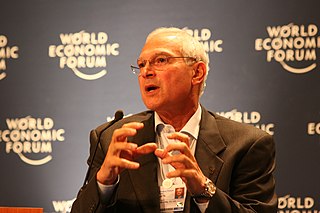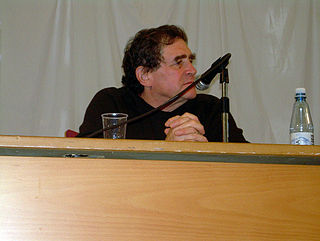A Quote by Christiana Figueres
The fact that solar has gone down 80 percent since 2008 is astonishing. Wind is perhaps not coming down as quickly. Lack of storage - batteries - is a bottleneck. That makes it very difficult to put large amounts of renewable energy on the grid.
Related Quotes
Wages for the ninety-nine percent have gone down, steadily, since 2008. They've gone down especially for the bottom twenty-five percent of the population. This means that they've gone down especially for Blacks and Hispanics and other blue-collar workers. Their net worth has actually turned negative, and they don't have enough money to get by.
The most straightforward path would be if we could bring the cost of solar electric and wind down by another factor of say, three, and then have some miraculous storage solution, so that not only over the 24-hour day but over long periods of time where the wind doesn't blow, you have reliable energy. That's a path. But energy storage is hard. That's not a guaranteed path.
One of the biggest issues with renewables right now is the fact that if the wind isn't blowing, if the sun isn't shining, we don't have energy. Many people are working on storage technology so when the wind isn't blowing, we can use the energy stored in our giant batteries, essentially. But what happens if we don't have enough stored energy?
In reality, Republicans have long been at war with clean energy. They have ridiculed investments in solar and wind power, bashed energy-efficiency standards, attacked state moves to promote renewable energy and championed laws that would enshrine taxpayer subsidies for fossil fuels while stripping them from wind and solar.
One of the reasons I think the population question is important, if we want to be as green as possible, any of our energy that is truly renewable is limited. Solar and wind are intermittent and they're so diffuse, it's difficult to harness them in a significant way. But one thing we could be doing is making it a law (like it is in Israel and Cyprus) to take every building eight stories or under and heat all of the water in those buildings with solar energy. It's absolutely simple and cheap technology.
Germany has a lot of solar power. In fact, in 2005, some 55 or 57 percent of worldwide installations were photovoltaics in Germany. That's 57 percent of all worldwide solar photovoltaics. Because of the high feed-in tariff, they have a way of allowing you to produce electricity and ship it into the grid at very high prices.
I stood with Jeff Merkley, the senator from Oregon, and Bernie Sanders, who I think may come from the very state you are in today. And they put forward really a landmark piece of legislation. For the first time, they said we need 100 percent renewable energy. Not, "We need some solar panels and we need some fracking wells." Not the all of the above energy policy that the Obama administration favored. Instead, finally saying, we are ready to go, 100 percent. The technology is clearly there.







































